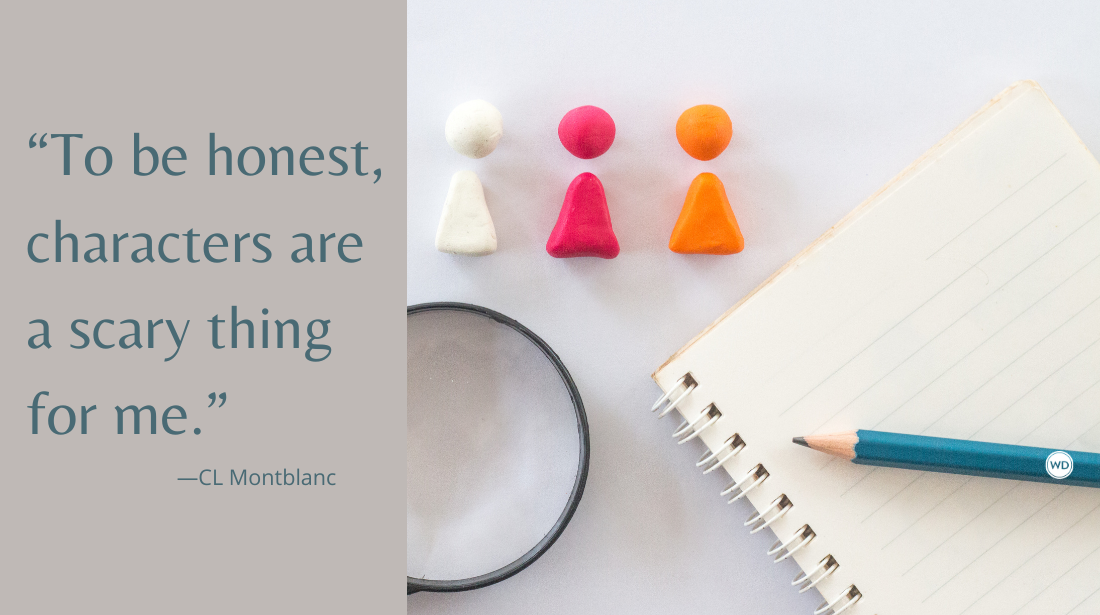Diversity and the Eleanor Taylor Bland Crime Fiction Writers of Color Award
Rachel Howzell Hall and Alex Segura discuss diversity in crime fiction, what they admire most in crime novels, their participation as judges in the Eleanor Taylor Bland Crime Fiction Writers of Color Award, and more.
Alex and Rachel here! We are excited and honored to serve as judges for this year's Eleanor Taylor Bland Crime Fiction Writers of Color Award. Since 2014—before #diversity and #ownvoices—Sisters in Crime has sponsored this important effort to nurture the growth of emerging crime writers of color. From editing fees to conference registration fees, this award can bring you one step closer to fully realizing your dream! To be captain of your own pirate ship! Wait. No. Our bad—that's another competition. This award, honoring prolific African-American crime novelist Eleanor Taylor Bland, will help prepare your novel for an agent or publisher. You'll be one step closer to seeing your name on the spine of your Great American Crime Novel!
On a Saturday morning, during the early weeks of the coronavirus pandemic and Safer at Home quarantines, we insta-chatted about the importance of this incredible opportunity—and how we would've used the $2,000 grant in the early days of our writing careers. We also chat about the challenges faced by crime writers of color and how Sisters in Crime has helped foster diversity and inclusion initiatives throughout the crime-writing community.
So, good luck, and we hope to see your application by the June 22 deadline!
RACHEL HOWZELL HALL: Hey, Alex! Glad you could make it. Days like this, when you're taking care of a baby, I'm glad I have a 16-year-old. Those, of course come with other worries.
ALEX SEGURA: Ha, yeah rough morning—thanks for being flexible!
Okay, so should we dive in? I'm sure you're busy today! Thanks for taking the time.
RHH: Yeah, I was just online, looking for apple cobbler recipes. There's one from Michelle Obama. Maybe I'll do that one. And I got up early this morning to write. Excited to talk to you about this contest. Especially now, it's weird to pivot to something like this—but as I set out books for my neighbor's free book library, and I piled the table high with books to give away, only two of those books of crime and mystery came from a writer of color—and both were by the same author.
That made me sad.
AS: I know what you mean. I've been somewhat productive on the writing side—but there's so much anxiety and uncertainty that I've also tried to just be kind to myself. This is a heavy subject, but it also feels like a nice distraction now, which is weird to say? Your book story reminds me of lists—and I've now, thankfully, become attuned to scanning them for diversity—you know, award lists, or best ofs, that sort of thing. And it all still feels lacking, which is why I think this award is as important as it ever was.
It was such a nice surprise to hear from SinC about us judging the Eleanor Taylor Bland Award, because it is something I know we're both passionate about. And this topic of helping to bring more writers of color into the crime fiction landscape is not a switch you can flip, either. It's an ongoing struggle.
RHH: It is an ongoing struggle. My mom is always shocked when she learns that one book of mine is being published and I'm hard at work on another. She's like, where do you get all these ideas? For me, I want every story that features a white character to have a counterpoint book—a person of color discovering bodies, solving crimes, finding love, being scared.
With crime fiction, there are millions of stories for us to get to, millions of opportunities to feature people who look like us and have experienced all that we have. SinC asking me to judge was such an honor—and I'm looking forward to finding that next voice!
AS: Me too! For me, the awareness, I guess, of diversity was very primal. When I wanted to start writing PI novels, it came from a desire to write them like the books I was reading—mostly by white men and women—but then also feeling like something was lacking. Why wasn't there a Cuban PI? Why wasn't there a detective who spoke Spanish? Why were the people like me always the drug dealers and crooked cops?
I just wanted to push back on that, so I could relate to what you said—wanting to add to the chorus but sing a different, but just as important, tune. Helping the next generation of diverse voices—turning the volume up for them in a way we couldn't experience when we were starting out—is really important to me.
RHH: And it's also about authenticity for me. I've read stories, then and now, written by white authors that are great and they may have a black character—and that character is like…. generic butter or off-brand spaghetti sauce, you know what I mean? The taste is there, but… not.
For instance! There's a thing in General Black Culture about the wonders of ginger ale. Even if I don't write directly about ginger ale, the soul of that 'black people give ginger ale to cure coronavirus' is somewhere in there. White authors wouldn't get that and so while the character they wrote was black, that character was black in description only. That black character had NO IDEA that ginger ale, saltine crackers and Vicks Vapor Rub and watching soap operas after "The Price is Right" were the cures for EVERYTHING.
Did that make sense? Hahahahaha.
AS: Totally! So true. I feel like I've been seeing a version of that all my life—the white writer not bothering to spend time learning the culture they want to utilize, and it ending up being mangled, Google Translate Spanish, or this idea that all Latinx cultures are interchangeable.
At first, as a kid, I just...got used to it? It just felt like they were the stakeholders and got the chance to write these stories, and then as I got into publishing—first as a staffer at a company, then as a writer—you start to see how the sausage is made, and you notice that the gatekeepers are, still are, mostly white. And that leads to an insurmountable imbalance in what books are approved and what books are championed and so on. And then as a writer, you really want to keep pushing and make sure you keep your own stories true to not only you, but your background.
I get so many notes from students and other Miami writers who seem so grateful that I'm writing about THEIR culture and THEIR city, and it's really gratifying, because that's the goal. To be honest. And present readers with something different but also compelling!
RHH: So true! And instead of teaching others how to write our stories, I'm glad that there is now more demand to get that story straight from the source. I'm glad that SinC and other organizations value this type of authenticity. For you, what type of voice compels you in crime/mystery?
I like gritty or noir but not grit-porn, noir for the sake of noir. I like humor but not cutesy stuff since what we write tends to be about life and death situations. That doesn't mean I don't like cozy—I like a bunch of cozy stories but those that I like have this dark underbelly to them. Like they can turn and bite at you. Like… like… an almost-rabid cocker spaniel.
AS: Ha! Yes. You nailed it—I don't want to read someone's idea of what it's like to be a person of color, I want to get to the heart of it. Which isn't to say people can't write outside of their experience—but you damn well better show your work. Prove that you did the research and immersed yourself. Especially if you're claiming it to be definitive, as *cough, cough* some books do.
It's amazing that this award exists, too, and that so many of the organizations in our genre are embracing diversity and really pushing to make a change, with SinC at the forefront. For me, I'm a sucker for a great voice—the novels that made me want to write crime were so strong in not only character, but place—this idea that you're being transported to a city you've never explored by an expert. You're getting the off-the-beaten-path tour, and you're seeing things you'd never see in real life. I like to feel the grit of the city and the grays of the characters' lives.
I like humor, too, but my heart is with the noir novel, and I love noir novels that take the core elements and inject something new, vibrant and diverse.
RHH: Yes! That's why I love your Pete Fernandez books—no one else could've written that series. And when I'm looking and critiquing for contests and such, as I read, I ask myself, "Can this excerpt be written by anyone? Is there a 'voice' with this piece? Am I being taken along on a ride to somewhere I thought I knew?" I like all books that capture me with voice and setting.
AS: I was so happy to see you were judging this, too, because it's always more fun when you're working with someone you already read—for pleasure! Your mysteries feel so alive and present, which sounds generic but isn't meant to. They don't feel forced or overcooked, which I love. When I'm reading the submissions I look for voice, too, and authenticity—is this person telling me something only they can? Am I getting insight into a world I can't claim to be part of?
Before we close out, though, Rachel—can you talk a little bit about how this award would have helped you when you first started out? What missteps could you have avoided if you had access to these resources? I know it would have been a huge help to me—in terms of confidence and knowing there was a greater community out there. Starting out as a writer of color can be very solitary, especially if you don't know there are others like you—just ramping things up.
RHH: I always think about feeling so alone when I attended my first Bouchercon. Feeling alone and like an imposter. Even though I had sold my first book in the Lou Norton series, I didn't know anyone. If I'd had access to this award, I would've had a network of writers to surround me—online and in person. There's nothing like having someone to talk to who knows what it means to be the "only." I'm glad storytellers can turn to SinC and the Bland award for help in building their writing careers.
*****
For more information and to apply for the award, please visit: https://www.sistersincrime.org/page/EleanorTaylorBland
Rachel Howzell Hall, author of the bestseller and Lefty Award-nominated They All Fall Down (Forge), writes the acclaimed Lou Norton series, including Land of Shadows, Skies of Ash, Trail of Echoes, and City of Saviors. She is also the co-author of The Good Sister with James Patterson, which was included in the New York Times bestseller The Family Lawyer. She is currently on the board of directors for the Southern California chapter of Mystery Writers of America, and lives in Los Angeles. Her next novel And Now She’s Gone will be published in September 2020. You can find her at www.rachelhowzell.com and on Twitter @RachelHowzell.








